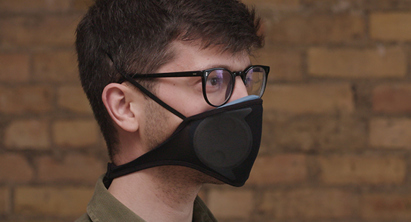Past Winners
See how manufacturing grants from Cool Idea Awards have helped previous winners develop and launch innovative products to market over the years.
2022

LunaMOTH
At Embry-Riddle Aeronautical University, undergraduate students studying spaceflight operations, engineering, and human factors are using their brilliance to design and prototype tools for space exploration.
2021
The BOOM![The BOOM components]()
The goal of Cool Idea Award winner, the BOOM, is to teach entrepreneurship, engineering, and economic skills to teen boys and girls who lack opportunities to learn marketable skills. Protolabs helped provide 3D-printed parts for the development process.
2020
Breathe99![Breathe99 mask]()
Medtech company Breathe99 has developed a new-form face mask that is intended to improve on the standard N95 mask used in most hospitals today. The B2 mask has a new foldable form and flexible interior, creating a tighter seal. It also boasts 99% filtration, and because the frame is reusable, less waste. Especially important during the COVID-19 epidemic, the mask can be made quickly, meeting crisis-level demand from the medical industry and general public. For long-term
serviceability, the B2 mask also includes replaceable filters
and frame parts that can be sterilized.
Tozuda
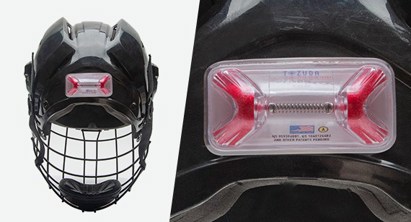
Tozuda looked at the marketplace for concussion prevention and saw it filled with competitors using high-tech solutions such as $200 “smart” mouth guards. For most athletic programs, that price was way out of reach for a device that simply makes athletes and coaches aware that a player encountered a particular level of force. Tozuda has a cost-effective solution.
Wayzn

Our Cool Idea Award winner and CES Innovations Award Honoree—the Wayzn Slide—marries human convenience and doggie happiness in one product. Wayzn’s founders invented a motorized opener that works on sliding doors and can be triggered by a touch on your smartphone screen.
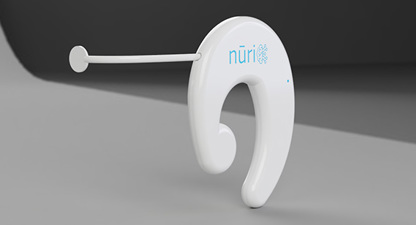
Nūrio
Nūrio is a wearable device that allows you to control any IoT-enabled appliance through your thoughts. It captures brain waves via one of the industry’s smallest EEG devices, and uses Bluetooth to wirelessly send that information to your smartphone.
2019
SmartCan
Rezzi has developed an autonomous motorized garbage can attachment and corresponding smartphone app that eliminates the need to drag your garbage cans out to the curb. Similar to how robot vacuum cleaners work, SmartCan aids in the recurring chore of taking out the trash.
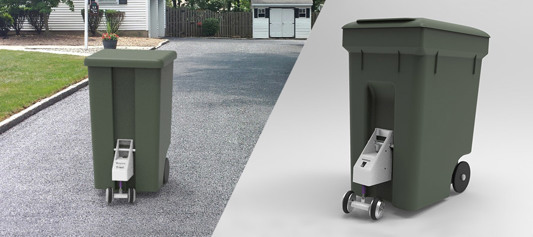
Sniffer Robotics
Sniffer Robotics developed a patent-pending, drone-based system that flies five times faster than walking and can precisely inspect a typical landfill within one day—without risk of injury and with higher fidelity data than existing processes. The system uses a closed-loop methane gas detector mounted onto an unmanned aerial vehicle or drone.
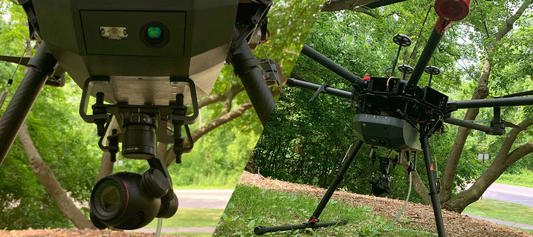
2018
Specdrums
Specdrums is an interactive musical application that transforms colors into sound to simplify learning a musical instrument. Through the help of a crowdfunding campaign, the company had amassed thousands of orders and was in need of production parts. With the Cool Idea Award, the Specdrums was able to quickly injection mold thousands of parts and fulfill orders placed by its early supporters.
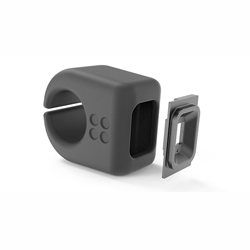 |
 |
2017
Sisyphus
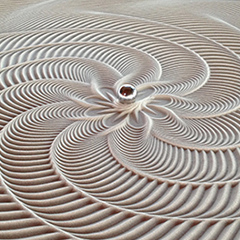 |
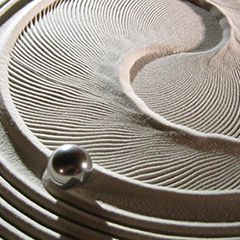 |
 |
FarmBot
 |
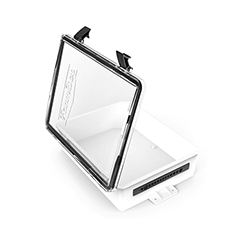 |
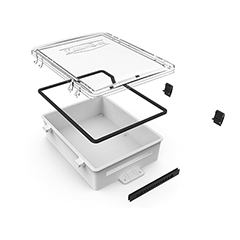 |
2016
Sleeping Beauty
Sleeping Beauty is a compact security device for tracking valuable personal belongings. The product’s designers leveraged Protolabs’ rapid CNC machining capabilities to prototype the design of the product’s plastic enclosure. With the Protolabs Cool Idea Award, Sleeping Beauty accelerated its time-to-market with rapid injection molding. The device’s GPS tracking capabilities enables it to track an object anywhere within cellular network coverage. And its low-power consumption technology enables it to operate on a single battery for up to one year.
 |
Strange Lenses
Strange Lenses, an art installation that utilizes optical liquid silicone rubber (LSR) lenses that were specially designed to create distortions that encourage strangers to interact. The project went on display at the Market Prototyping Festival in San Francisco in mid-October 2016 and will remain there for up to two years.
 |
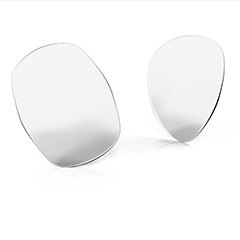 |
AgPulse
A Protolabs Cool Idea Award was presented to Mist Labs, Inc., developers of AgPulse, a water-management system that uses wireless technology and the internet of things to optimize watering and irrigation for farms, vineyards, orchards, gardens and backyards.
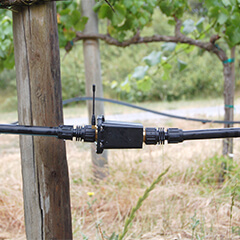 |
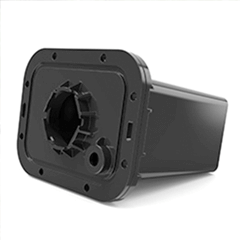 |
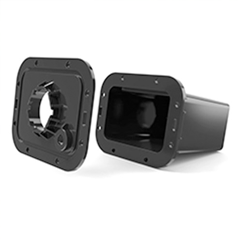 |
2015
Sprite
A Protolabs Cool Idea Award was presented to Ascent AeroSystems, developer of the Sprite. An ultra-portable drone, the Sprite collapses to the size of a water bottle and uses a coaxial rotor design (two rotors stacked one atop the other).
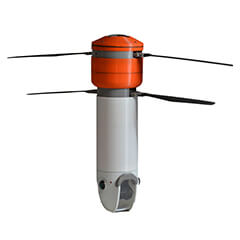 |
Revolve
A Protolabs Cool Idea Award was presented to Echo Laboratories, developer of the Revolve hybrid microscope. The Revolve combines two microscopes into one, transforming between upright and inverted views. Currently, in most scientific research laboratories, two separate types of microscopes — upright and inverted — are used. The Revolve also uses an iPad for an eyepiece.
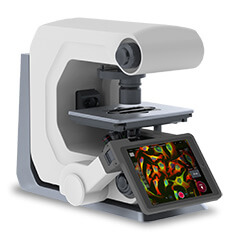 |
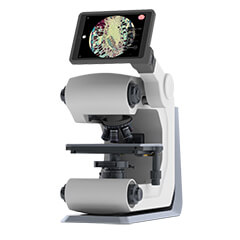 |
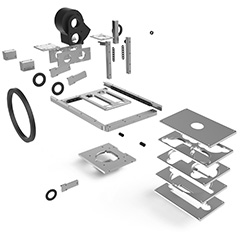 |
Compliant Games
A respiratory therapy system that’s a combination video game system and telemetry (transmitting and monitoring) instrument, Compliant Games helps pediatric and nursing home patients comply with respiratory therapy requirements, while providing clinicians with a low-cost instrument for the monitoring of those patients’ progress. With offices in Memphis, Compliant Games used the Cool Idea Award manufacturing grant for various custom prototype parts from Protolabs such as injection-molded airway tubes and other components.
 |
 |
 |
Embr Labs, Wristify
The thermoelectric wearable device actively cools or heats one’s skin for comfort by sending hot or cold pulses to a patch of skin on the wrist dozens of times per minute. Embr Labs used the Cool Idea Award grant for various custom prototype parts from Protolabs such as machined aluminum enclosures and Santoprene bottom components. Embr Labs’ developers describe Wristify as a “stylish bracelet” that cools or heats the skin, similar to what happens when you dip your toes in a cold lake on a hot, sunny day, or when you wrap your hands around a hot cup of tea on a cold night.
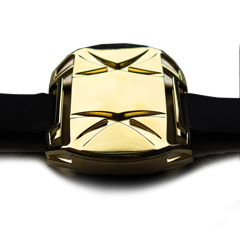 |
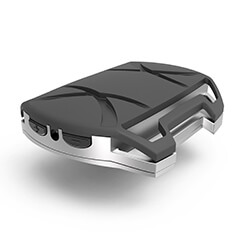 |
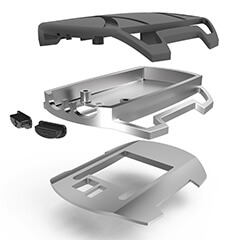 |
Hush Technology, Hush
Combining sound-eliminating foam and noise masking technology, Hush keeps unwanted noise out while allowing important alerts in. Hush allows users to sleep through snoring, loud neighbors and a host of other noises that disturb sleep without blocking out necessary sounds—like alarm clocks or emergency phone calls. The grant has provided Hush Technology with parts from Protolabs’ 3D printing and injection molding services.
 |
 |
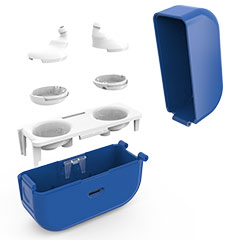 |
Clifton Roozeboom, Myriad Sensors, PocketLab
Myriad Sensors created a compact, affordable data measurement product called PocketLab. The device uses a wireless sensor and software platform to measure a number of different data fields that are then transmitted back to a computer or smartphone for analysis. PocketLab is inexpensive and intuitive making it particularly well-suited for students, teachers and professors working on science projects in need of solid analytical data. Its inventor, Clifton Roozeboom, used his Cool Idea Award grant on injection-molded plastic casings that form the outer shell of the device as well as additional liquid silicone rubber components. The parts serve an integral role in the protection and durability of end-use PocketLab devices.
 |
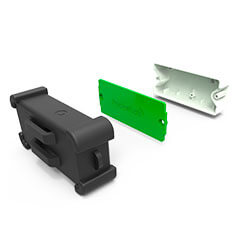 |
Skyven Technologies, Skyven Cogen System
Skyven Technologies developed a dual-purpose solar panel system that produces energy for both electrical power and water heat. The Texas-based company’s Cogen System integrates three technologies—traditional solar photovoltaic (PV), advanced concentrating photovoltaic (CPV) and solar water heating—into a single, multi-tasking solar panel. A network of panels can be installed on commercial and industrial rooftops, which then provides companies, hotels, factories and other large facilities access to more efficient electricity and water heating. Skyven founder, Arun Gupta, and his team used their service grant on various 3D-printed, machined and molded prototypes at Protolabs.
 |
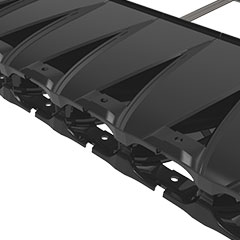 |
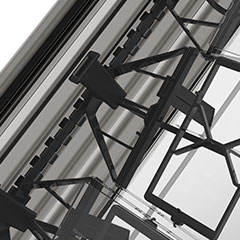 |
2014
Tejas Shastry, Alex Smith & Mike Geier, AMPY
AMPY has created a wearable device that captures and converts kinetic energy into mobile power for phone charging. The device can be strapped to a person’s arm, leg or hip, or carried inside a backpack or messenger’s bag, where it charges anytime movement is detected. 8,000 to 10,000 steps—a typical day of walking—gives the user another three hours of smartphone battery life, and an added 30-minute workout provides around 6 additional hours. The Cool Idea Award provided the team with the tooling and subsequent low-volume injection molded production run for the plastic AMPY clip and housings. The parts were used in devices shipped for pilot testing as well as upper-level crowdfunding perks for contributors.
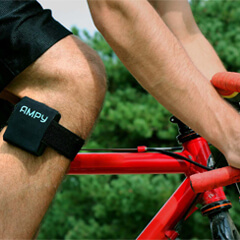 |
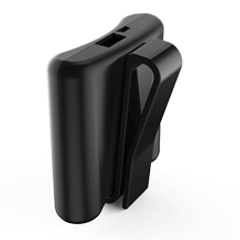 |
 |
Roambotics, Jr.
The team at Roambotics designed an autonomous personal robot with a unique set of security monitoring abilities. The compact robot named Jr. uses a freestanding wheel to independently traverse throughout a home or business where its audio sensors and four onboard cameras capture a near-360-degree view of an environment. If an intruder enters, the robot can notify a user of the break-in via text or email. Roambotics used its Protolabs grant for injection-molded interior frames, wheel assemblies, tire treads, handles and bumpers, which will comprise more than half of the components on the robots rolling out for targeted pilot testing. As the Roambotics continues to develop Jr., new abilities will be integrated such as three-dimensional mapping of spaces, capturing spontaneous moments at social gatherings and health care monitoring of senior citizens.
 |
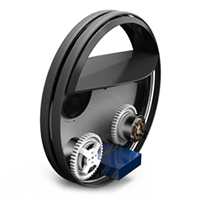 |
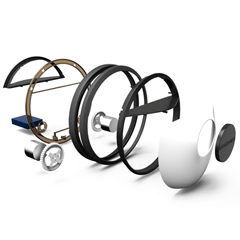 |
BlueRobotics, Thruster-100
The Thruster-100 is a compact, low-cost motor and propeller unit designed to make aquatic exploration more economically accessible. BlueRobotics, the company behind the propulsion system, seeks to provide a more accessible entry point for hobbyists, educators, students and professionals. Protolabs granted gratis tooling and subsequent production runs for the product’s plastic parts.
 |
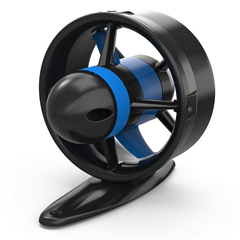 |
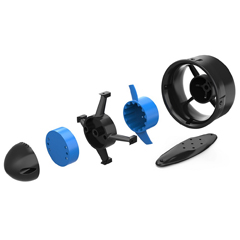 |
2013
Alottazs Labs, Garageio
Garageio is a system that allows users to control and monitor their garage door from virtually anywhere via smartphone. A smartphone app communicates with the in-garage device to provide users notification on up to three garage doors when one is opened or closed, activity reports and an online portal to view when and who has accessed a door, alerts when a door is left open for too long, and enables users to open and close doors. Protolabs provided gratis prototype casings and a subsequent production run of parts.
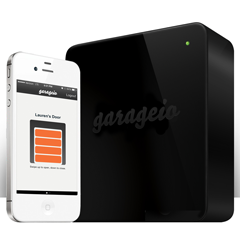 |
 |
 |
Point Source Power, VOTO
Point Source Power developed VOTO, a handheld device that transforms heat into electricity for use in cell phone charging or LED lighting. The device seeks to bring affordable electricity to developing nations. Electricity is captured with the heat produced from an everyday item—a cook stove—and then stored in the onboard battery for later phone charging or LED lighting use. VOTO uses durable plastic casings manufactured with the help of it Cool Idea Award.
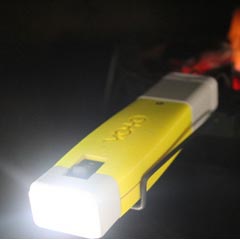 |
 |
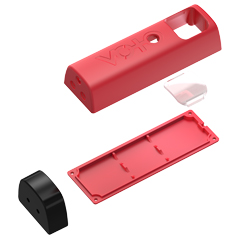 |
2045Tech, FLOOME
Italian company 2045Tech has created FLOOME, a smartphone breathalyzer that provides users with accurate and reliable blood-alcohol readings. FLOOME’s patent-pending technology matches a vortex whistle with the same fuel cell ethanol sensor that is widely used in law enforcement breathalyzers. The collected data is sent to a corresponding smartphone app where the user can view their blood alcohol content, get an estimate of when they will reach the legal limit to drive, set an alarm to take a new test, view a graph of previous results, or call a nearby taxi.
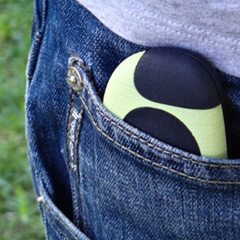 |
 |
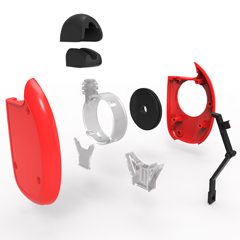 |
Dan and Liz Salcedo, Everpurse
Everpurse is a purse that features an integrated smartphone charging system. The system includes a wireless charging dock with an internal battery bank built into the wall of the purse, and an inductive charging mat that the purse can be placed upon when not in use to charge the internal battery bank. The Cool Idea Award provided Everpurse with the molds and parts needed to help fulfill their Kickstarter orders and Protolabs’ fast turnaround time assured quick time to market.
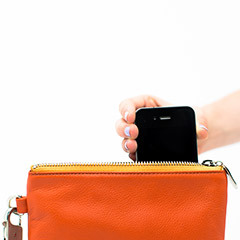 |
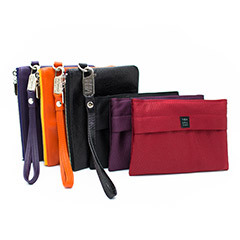 |
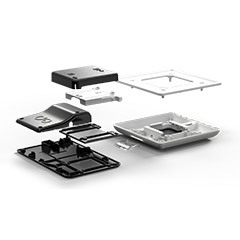 |
Joel Townsan, Flipout, Tantrum
Flipout Screwdrivers launched Tantrum, an electric screwdriver designed for tight spaces. The Tantrum can be configured into 168 positions, giving access to spaces inaccessible to traditional power tools. The Cool Idea Award provided tooling and a subsequent first production run of injection molded parts in preparation for the product’s Kickstarter campaign.
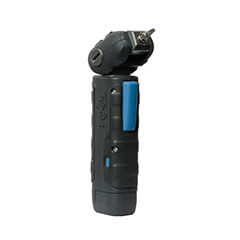 |
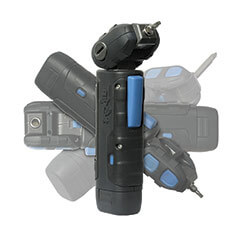 |
 |
Maze-O
Maze-O, a colorful plastic maze building set received injection molded parts for initial working prototypes as a recipient of the Cool Idea Award. Maze-O fosters spatial reasoning and fine motor skills in a fun way. The sets received from the manufacturing grant were used to market the toy to potential distributors at New York City’s Toy Fair.
 |
 |
 |
D-Rev, ReMotion Knee
D-Rev's ReMotion Knee is a low-cost prosthetic knee joint for above-the-knee amputees living in developing countries. The ReMotion Knee allows these individuals to walk stably on the uneven or unpaved terrain typical of the developing world. D-Rev was awarded Protolabs services to produce knee joints for use in field testing.
 |
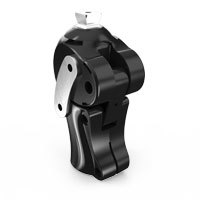 |
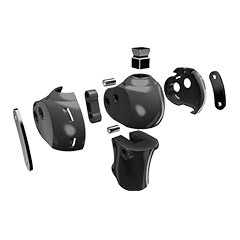 |
2012
iPourIt, Inc., iPourIt
iPourIt’s innovative system allows bar patrons to pour their own tap beer and wine. iPourIt employs proprietary technology that provides customers the ability to fill their glass with the exact amount desired on their time, rate the drink, find nearby taps, reserve pints ahead of time, and even buy rounds for friends.
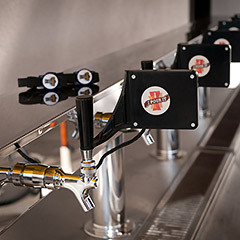 |
 |
IN3G, Télétact
French company IN3G launched its Télétact device that connects to a standard white walking stick and brings additional navigational aid to visually impaired individuals by employing infrared detection and vibration feedback. Télétact uses sonar technology to detect obstacles in advance and relays that information back to the user in a way that gives them a better understanding of their environment.
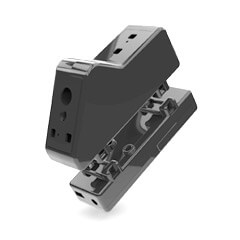 |
 |
Soloshot Inc., SOLOSHOT
SOLOSHOT is an object tracking system that combines with virtually any camera to track a single subject and capture video from up to 2000 feet away. Ideal for sports enthusiasts looking for high-quality video footage of themselves, the SOLOSHOT employs remote and base units that are in constant radio communication, allowing the user to move anywhere within range and keep the camera focused on themselves.
 |
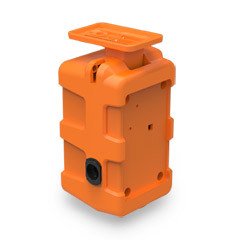 |
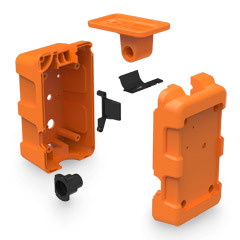 |
Transition Robotics, Quadshot
Transition Robotics, Inc. developed Quadshot, an open-source, remote-controlled aircraft that combines the functionality of both a helicopter and an airplane. Equipped with gyroscopes, accelerometers, and microprocessors—originally developed for smart phones—the Quadshot is capable of high speeds and impressive aerobatics. The Quadshot can be purchased fully assembled and ready to fly, or in one of three packages that encourage users to modify the electronics and software to custom-fit their desires.
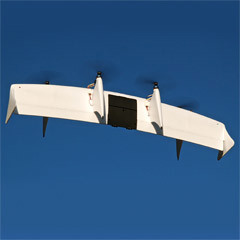 |
 |
2011
6dot, Braille labeler
6dot is the maker of a lightweight, handheld Braille labeler. The portability and intuitive nature of the labeler enables those without sight to better navigate their everyday environments. Additionally, since early Braille literacy has a positive correlation to employment among the blind and visually impaired later in life, 6dot hopes their device, that even young children can manage, will have an impact on improving the Braille literacy rate.
 |
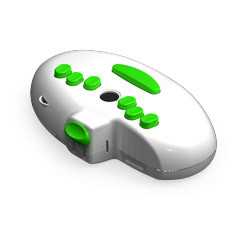 |
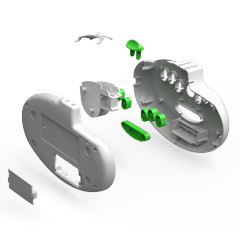 |
Andy Miller and Tess Bakke, SkyLight
SkyLight, a device that connects any smartphone to any microscope, was created by Andy Miller and Tess Bakke to help transform global healthcare, telemedicine, science education and research capabilities. With SkyLight, people around the world are able to share images and videos via their smartphone. Healthcare workers in a third world country can capture and send diagnostic images to a trained expert able to make a vital diagnosis. As a Cool Idea Award recipient, Protolabs provided SkyLight with CNC machining for prototyping, followed by injection molding tooling and accompanying plastic parts.
 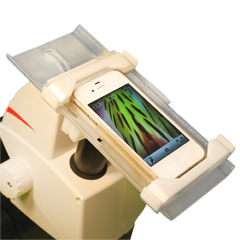 |
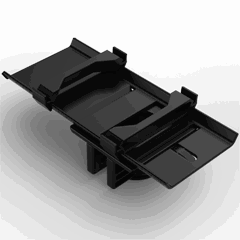 |
 |
Matt Nestor, QuicKaddy
Matt Nestor received Protolabs machined prototype parts as a recipient of the Protolabs Cool Idea Award for his QuicKaddy Hex Key case. The case allows a hex key to be quickly pulled straight from the case without having to move other hex keys in the process since there are slots, not through holes, which are typical of most cases currently on the market. The keys are held in place by powerful magnets located in the body of the case. Nestor’s design allows tools to be organized and accessed faster and easier than existing hex key cases, saving the user time and increasing productivity.
 |
Whirlwind Wheelchair International, Roughrider
Whirlwind Wheelchair International’s lightweight and rugged RoughRider wheelchair received Protolabs injection-molded parts for the key side panels needed for an initial U.S. launch. The RoughRider was originally designed for those with disabilities in developing countries as a low-cost, highly durable wheelchair that can handle rough terrain with ease. The RoughRider combines a revolutionary long wheelbase with a unique, high-impact/high-flotation wheel to allow users to safely descend curbs and short flights of stairs and to easily traverse obstacles in their path.
 |
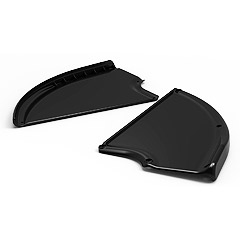  |
Rice University, r-one
Rice University received Protolabs injection-molded prototyping and production services for their “r-one” robotics project, designed to aid undergraduate engineering students research multi-robot systems at a low cost. The robots, developed by Professor James McLurkin and his students, have the ability to communicate with the user and with one another using an internal computer, motors, lights and sounds.
 |
Don Ladanyi, TruFlavorWare
Don Ladanyi of Westlake, Ohio, was awarded Protolabs injection-molded prototyping and production services to help launch his line of flatware, TruFlavorWare, developed specifically for chemotherapy patients. TruFlavorWare is non-metallic, organic, taste-inert flatware, designed to make food taste better by eliminating the aversive “taste-reactive” electro-chemical reactions caused by metal knives, forks and spoons. Ladanyi’s product brings particular relief to cancer patients undergoing chemotherapy by removing the bitter metallic aftertaste that often occurs when trying to eat with standard metal flatware.
 |
 |








